|
|
|
|
|
|
| ACTIONS TAKEN |
As response to the regional Arab Spring, government corruption and human rights abuses, combat started with wanted political reforms,
an end to the domination of the Ba’ath Party, more civil rights, calling the release of political prisoners, and the end of the state of emergency that has existed since 1963 (and was finished 19-4-2011). Before the armed conflict, there were strict security measures, a relatively popular president, religious diversity, and concerns over the prospects of insurgency like that seen in Iraq. |
| For years, Syria is involved in an armed conflict between multiple parties: democratic opposition, disadvantaged and impoverished provincial Sunni, political islamists, Salafists, and other radical Sunni fighters. Together with the Syrian Muslim Brotherhood and Wahabites an armed struggle began against the Syrian army, the police and the Syrian regime. Result is human rights violation, a humanitarian disaster: 1,8 million refugees, 6 million people have been displaced, over 100.000 were killed and a large number injured. Although several attempts were made to start talks (the regime promised several times a peaceful dialogue with the democratic opposition if the armed rebellion was ended, through Kofi Annan, and between Russia and US), it was for various reasons such as discussions on the structure and attendees of the meeting that negotations failed to succeed. In August, Russia, Germany, GB, Turkey, Iran and US agreed to facilitate together peace talks in Geneva, (G-2 talks). |
| ACTIONS TAKEN BY THE UNITED NATIONS SECURITY COUNCIL
The United Nations Supervision Mission in Syria (UNSMIS) was established by Security Council Resolution 2043 of 21 April 2012 (and SC resolution 2042 of 14 April 2012) as part of the Joint Special Envoy's Six Point Plan designed to end the escalating conflict. One of the key elemens of the plan was to bring about a sustained cessation of armed violence with an effective UN supervision mechanism. The new Mission absorbed a small advance team of unarmed observers dispatched by the Council to Syria a week earlier pending a decision on a wider peacekeeping supervision operation based on the Secretary-General's assessment of the situation on the ground, UNSMIS, set up for an initial 90-day period, was to compromise of 300 unarmed miitary observers as well as an appropriate civilian component to monitor a cessation of armed violence "in all its forms by all parties" as well as the full implementation of the six-point proposal to end the confict. POLICY EXPERTS EMPHASIZES DESTRUCTION OF SYRIAN CHEMICAL WEAPONS |
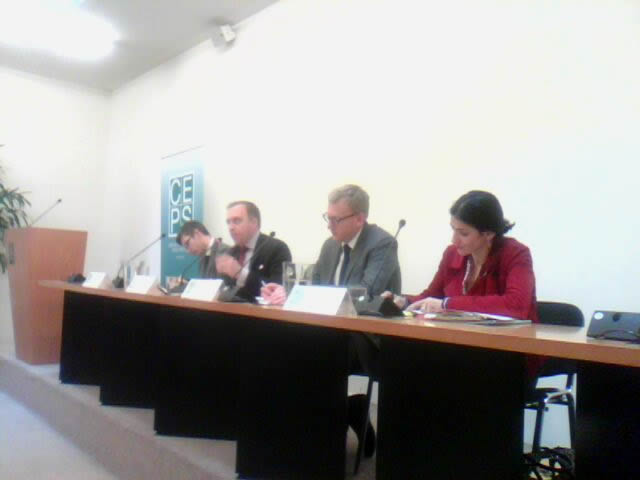 |
by Corinne Kennedy, 18-02-2014
Middle East policy experts agreed the next steps for the international community regarding Syria need to be carrying out the removal and destruction of chemical weapons from Syria and continuing with the Geneva II negotiations, despite the first two rounds having achieved very little. The panel of experts also stressed the need for increased humanitarian aid and counter terrorism measures to be taken. At a discussion organized by the Center for European Policy Studies and the US Mission to the EU, Middle East specialists from The Washington Institute in the US, the European External Action Service and Oxfam discussed the next steps the international community must take to mitigate the Syrian crisis. |
|
"There are so many parts to the Syrian crisis," Andrew Tabler, Senior Fellow at The Washington Institute who specializes in Syria and the Levant, said. Previous actions and dialog may have gotten the ball rolling, but "rolling where? And how long is it going to take?" He repeatedly stressed the need for the international community to adhere to the policy objectives established in United Nations Security Council Resolution 2118. This resolution condemns the Syrian chemical weapons program and the use of chemical weapons, particularly on civilians.
Bashar al-Assad's government has fallen well behind on their agreement to destroy their chemical weapons capabilities; only 11 percent of Syria's chemical weapons have been removed so far and many of Syria's chemical weapons plants, rather than being destroyed, have merely been closed off. As chemical weapons have been one of the few areas where all parties, including Russia and the US, have been able to come together, Tabler emphasized that all sides need to continue to work together in on this issue until all chemical weapons capabilities have been destroyed. Tabler also talked about the need for the international community to discuss, and act on, counter terrorism efforts. He said there are terrorist forces fighting on both sides of the conflict: Shia militias from Iraq as well as Hezbollah have been fighting on the side of the government while al-Qaeda affiliated groups ISIS and Jabhat al-Nusra fight against the regime. These groups have been able to thrive in areas of the country not fully controlled by the regime or the opposition and have added greatly to the instability and violence of the conflict. Nacira Boulehouat, Deputy Head of Middle East Division at the European External Action Service, highlighted the need for increased humanitarian aid, not military action. "The military option is not on the table in the minds of the EU 28—for now," Boulehouat said. In order to keep the opposition at the negotiating table and work towards the main goal of political transition, three key things need to happen:
According to Boulehouat, the EU has already donated €2.6 billion, most of which is distributed through UN programs. However some of the aid, particularly in Jordan and Lebanon, has also been distributed by national governments or NGOs to help maintain refugee programs in those countries. Richard Stanforth, Oxfam Regional Policy Officer specializing in the Middle East and North Africa, also talked about the need for increased humanitarian aid, saying that donors like the US and EU have been generous, but much more is needed. All three experts agreed there must be increased humanitarian aid, destruction of chemical weapons and continuation of negotiations, but that there was no one key to resolving the crisis, which has grown increasingly complex as fighting continues. Any resolution in Syria will involve multiple steps and series of negotiations and will most likely take a long time to achieve. "There's no easy answer to the Syrian crisis anymore," Tabler said. |
| UNSMIS DEPLOYMENT AND ACTIVITIES
With a record rapid deployment, UNSMIS was fully operational on 30 May 2012. A month later, on 30 June 2012, USMIS had 278 military observers at its Damascus headquarters and eight team sites, in Aleppo, Damascus, Deir-ez-Zor, Hama, Homs, Idlib, Deraa and Tartus, and 121 civilians staff addressing political and civil affairs and human rights matters, administration and support at Mission headquarters, with mixed military-civilian teams at five of the sites. UNSMIS operations focused in and around population centers, in relation to both military monitoring and civilian interactions. To consolodate the cessation of violence, saturated patrolling was conducted in those areas, together with visits to conflict-prone and incident-specific areas for fact-finding and tension defusing purposes. As civilian staff was deployed, mixed teams expanded their interactions and sought every opportunity to engage with the local population in Government and opposition areas, building a network of community contacts as well as national officials. Liaison and engagement at the local level were important instruments towards the building of stability where signs of cooperation encouraged it. UNSMIS monitoring and reporting activities were hampered, however, by several factors. Access to incident locations or conflict was, on multiple occasions, delayed as a result of security concerns or Government warnings or by opposition actors and groups of civilians. In addition, civilians in opposition-held areas claimed to have been subjected to retaliation by Government forces following UNSMIS visits, were critical of the lack of protection from the Mission and became hostile towards observes on several occasions. |
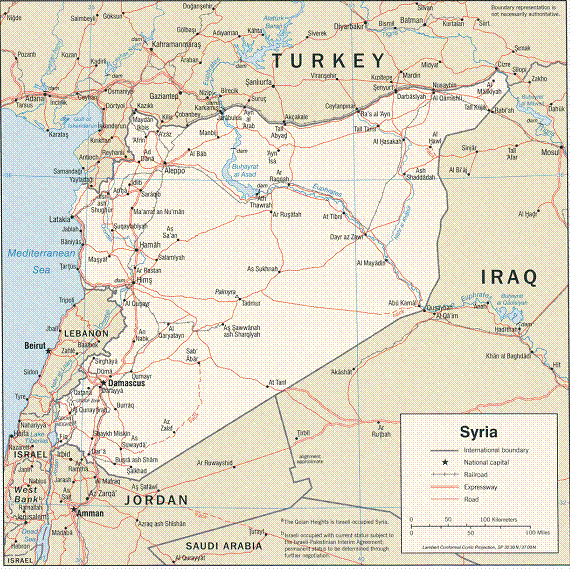 |
As living conditions deteriorated, popular expectations grew that the presence of the United Nations military observers would result in a cessation of violence and provide protection to civilians. UNSMIS was active in taking advantage of public information opportunities to emphasize its continued commitment to the Syrian people, explains its limited role and contain expectations. In the meantime, risks posed to the observers rose in tandem with the hostilities.
By mid-June, the number of indirect incidents of firing in the vicinity of observers or team sites had mounted, and there were several incidents in which weapons fire had a direct impact on team sites. The frequency and gravity of encounters with hostile crowds increased, as illustrated by the 12 June incident outside Al-Haffah, in which UNSMIS vehicles were blocked and damaged by a crowd and then fired upon by unknown persons, during attemps by observers to reach the town. End of UNSMIS Mission On 6 July 2012, the UN Secretary-General (S-G) reported to the Security Council on gthe implementation of the UN Security Council Resolution 2043. In the report, the S-G analyzed the rapidly deteriorating situation in Syria, reflected on the political efforts to resolve the crisis and described UNSMIS deployment and activities. The Secretary-General presented the Council with options for the future of the UN Supervision Mission in Syria which included:
He said that those proposals were neither exhaustive nor fully reflective of evolving conditions on the ground nor did they account for operational and political developments subsequent to the submission of that current report. On 20 July 2012, the Security Council extended UNSMIS for a final period of 30 days. According to Security Council Resolution 2059. the Council would only consider further extensions to the mission "in the event that Secretary-General reports and the Security Council confirms the cessation of the use of heavy weapons and a reduction in the level of violence sufficient by all sides" to allow the UNSMIS monitors to implement their mandate. The two conditions set by the Council were not met, as was reported in the UN S-G letter to the UN Security Council of 10 August, 2012, in which the UN S-G set forth his observations on the future work of the United Nations in Syria. UNSMIS mandate came to an end at midnight on 19 August, 2012. For a more educated opinion, you will find reflections on Syria below: |
From ECFR ' Eight things to consider before intervening in Syria.' |
From International Coalition for the R2P an overview in the course of the crisis. |
From Thomas More Institute: 'A hasty “military” intervention in Syria would be a mistake!' |
A comprehensive EU approach (from European Commission to EP, EU-Council, EESC and CoR) |
From Russia, an interview 31-08-2013 by Vladimir Putin, published by the Kremlin |
The commentary 'Syria and the red lines of international law' |
| PEACE PALACE - MODEL UN |
On September 7, 2013, the “Centenary Peace Palace Model United Nations” attracted a total of 250 participants who gathered to simulate the United Nations Security Council in it efforts to shape a peaceful Resolution for the conflict in Syria.
After the keynote speech by Mr Richard Dictus (UNV Bonn), several Masterclasses on UN topics, and a tour through the Peace Palace (incl. the main Court Room), the specially designed Model United Nations started.
The Security Council resolution was rejected after a veto by the Russian Federaton. China had abstained from voting. |
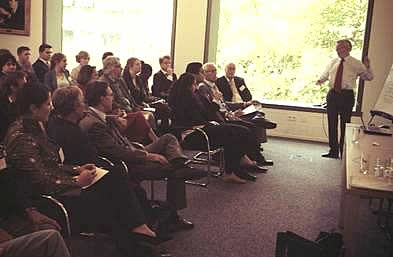 |
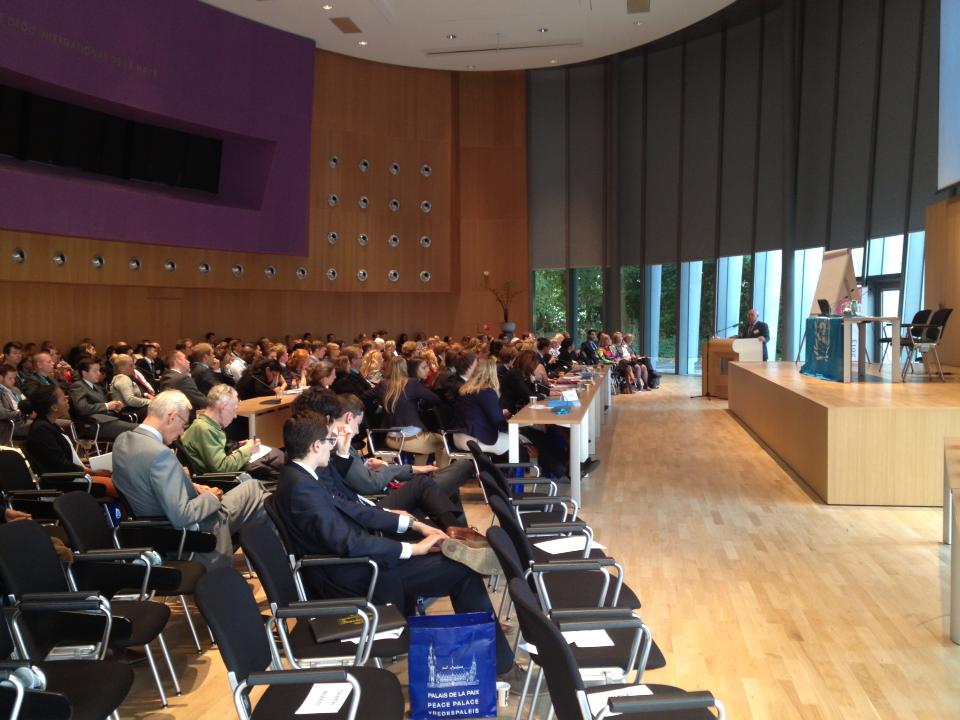 |
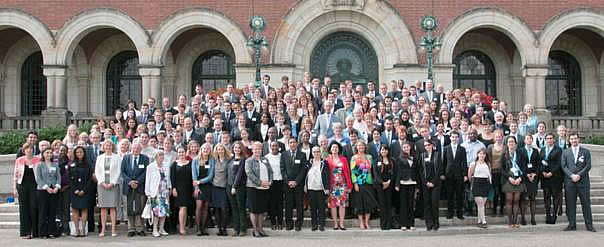 |
Thursday 12/09/13, the United Nations has received a letter of notification of Syria for the Chemical Weapons Convention. U.S. Secretary of State John Kerry is still not satisfied with the commitment of Syria, and said that the U.S. can still proceed to military intervention. He stated in presence of Russian counterpart Sergey Lavrov in Geneva. According to Lavrov 'cleaning up the Syrian chemical arsenal makes any attack on the country superfluous'.(letter 13 September 2013 to SG UN from OPCW and WHO, belonging to the report on the investigation of the alleged use of chemical weapons on 21 August 2013 in the Ghouta area of Damascus, S.A.R.) Security Council adopted 27 September unanimously resolution 2118, which requires scheduled destruction of Syria’s Chemical Weapons. |